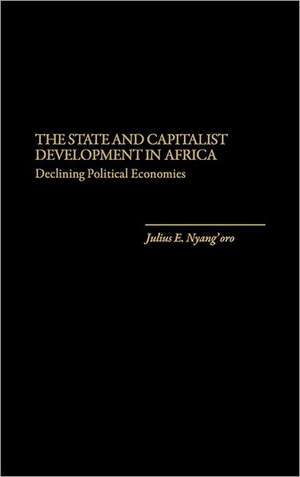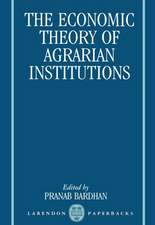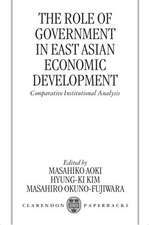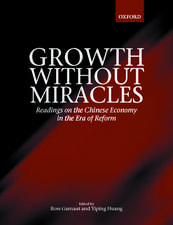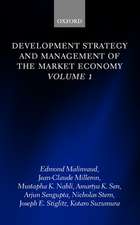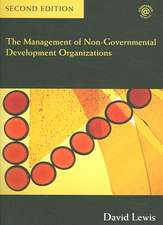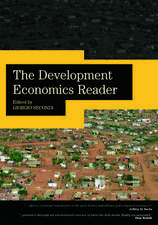The State and Capitalist Development in Africa: Declining Political Economies: Literature; 33
Autor Julius Edo Nyang'oro, Julius E. Nyang'oroen Limba Engleză Hardback – 30 iun 1989
This work goes beyond recent analyses of African development to present a post-dependency framework for the study of Africa's political economy. The author argues that, although the contributions of the modernization and dependency frameworks cannot be ignored, recent economic and political adjustments and realignments require a more penetrating analysis--one that takes into account such factors as the overall growth of the economy, the role of the state, parallel markets, and capitalist development in general. An ideal supplemental text for courses in comparative politics, international political economy, and African development, the volume is comparative in approach and covers the countries of sub-Saharan Africa.
The author begins by discussing the various dimensions--agricultural, environmental, industrial, population--of Africa's continuing crisis condition. He then closely examines the African development experience since independence and explores the evolution of development theory and its application to Africa. Arguing for a new mode of production approach to the study of Africa's political economy, the author attempts to determine whether Africa is indeed predominantly capitalist and raises questions regarding prevailing theories of capitalist development. Finally, Nyang'oro looks at the state in Africa, pointing to some fundamental weaknesses that contribute to the ongoing crisis and offering a perceptive assessment of development options open to Africa.
Preț: 345.74 lei
Preț vechi: 556.31 lei
-38% Nou
66.16€ • 70.75$ • 55.16£
Carte tipărită la comandă
Livrare economică 17 aprilie-01 mai
Specificații
ISBN-10: 027593120X
Pagini: 189
Dimensiuni: 156 x 234 x 13 mm
Greutate: 0.45 kg
Editura: Praeger
Seria Literature; 33
Descriere
The author begins by discussing the various dimensions--agricultural, environmental, industrial, population--of Africa's continuing crisis condition. He then closely examines the African development experience since independence and explores the evolution of development theory and its application to Africa. Arguing for a new mode of production approach to the study of Africa's political economy, the author attempts to determine whether Africa is indeed predominantly capitalist and raises questions regarding prevailing theories of capitalist development. Finally, Nyang'oro looks at the state in Africa, pointing to some fundamental weaknesses that contribute to the ongoing crisis and offering a perceptive assessment of development options open to Africa.
